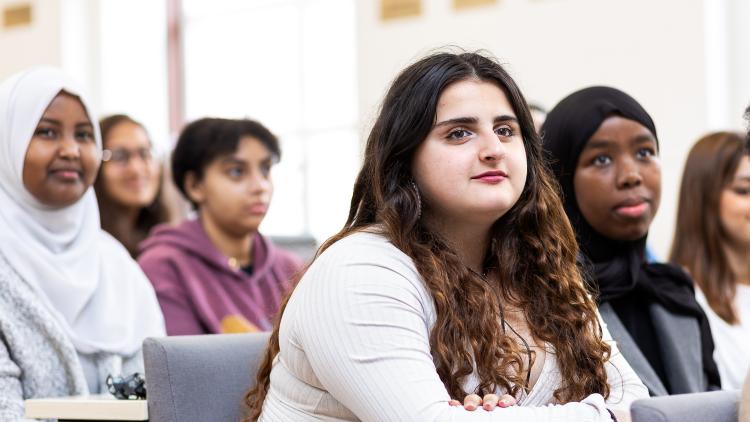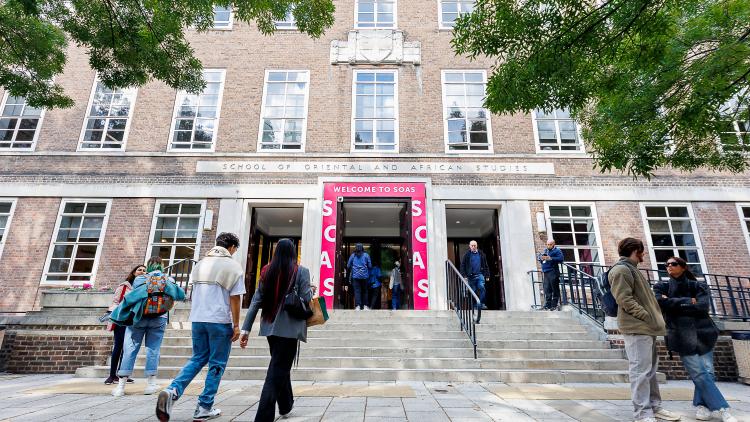Welcome to SOAS
|
How do we grow our economies year on year?
|
We ask...
Is there a solution to the world’s refugee crisis?
We ask...
How do the arts shape the way we view the world around us?
We ask...
How do experiences of colonialism shape international politics?
We ask...
How do museums, heritage and colonialism intersect?
We ask...
How does the environment intersect with global poverty and inequality?
Discover the answers at SOAS - The World's University

Student Webinar Series
Join us for our Student Webinar Series and find out everything you need to know about studying at SOAS University of London.
Explore our sessions
Chat with a student
Ask some of our current students about their experience of life at SOAS.
Blog spotlight (Exam edition)
B
l
o
g
s
p
o
t
l
i
g
h
t
(
E
x
a
m
e
d
i
t
i
o
n
)
Visit us
V
i
s
i
t
u
s




